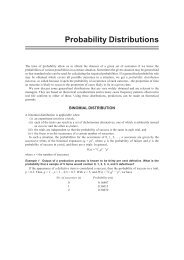International-Business-Dr-R-Chandran-E-book
International-Business-Dr-R-Chandran-E-book
International-Business-Dr-R-Chandran-E-book
You also want an ePaper? Increase the reach of your titles
YUMPU automatically turns print PDFs into web optimized ePapers that Google loves.
GLOBALISATION TRENDS<br />
138<br />
<strong>International</strong> <strong>Business</strong>- <strong>Dr</strong>. R. <strong>Chandran</strong><br />
Globalisation can be defined in several different ways depending on<br />
the level we choose to focus on. The philosophy is “the whole world is my<br />
market; wherever the opportunity arises I will tap it irrespective of location,<br />
standard of economy, ethnic relations and all other parameters.” “Cross<br />
border customers are my neighbours; I will be close to them at any time” – a<br />
slogan of a global manager. “Globalisation is a mindset rather than physical<br />
pharmaceutical giant in India.<br />
At a worldwide level globalisation refers to the growing economic<br />
interdependence among countries, which is reflected in the increasing crossborder<br />
flow of goods, services, capital and know-how. Clear evidence of this<br />
is offered by the following trends:<br />
Between 1989 and 200, cross-border trade in goods and services grew<br />
at an average annual rate of 6.4 percent. This is almost twice as fast as the<br />
average annual growth rate of 3.2 percent in the world’s GDP during the<br />
same period.<br />
From 1980 to 2000 foreign direct investment grew from 4.8 percent to<br />
10 percent of the world’s GDP. Destinations for flow of funds have changed<br />
drastically. It has increased to 18% till the first half of 2007.<br />
In 1970 cross-border transactions in bonds and equities, as a ratio of<br />
GDP, stood at under 5 percent in the US, Germany and Japan. By 2001, the<br />
respective figures for these countries had soared to 152 percent, 197 percent<br />
and 83 percent respectively. After 2001 every year it witnesses more than<br />
15% in all those three countries.<br />
At the level of a specific country, globalisation refers to the ability of<br />
the country to expand its trade and aggressively dominate in other parts of<br />
the world; by motivating its entrepreneurs by investing, manufacturing and<br />
marketing.<br />
Only for Private Circulation





